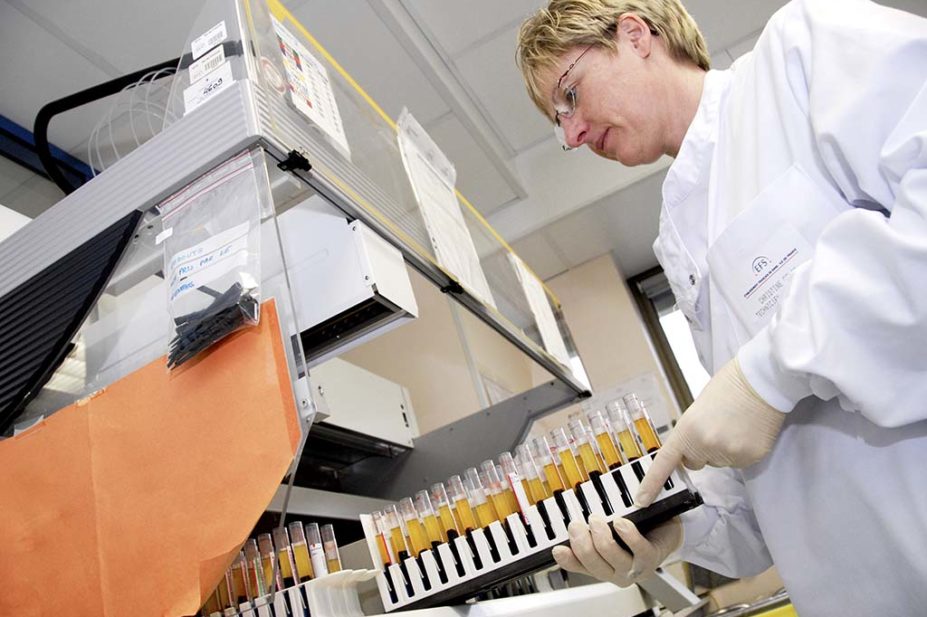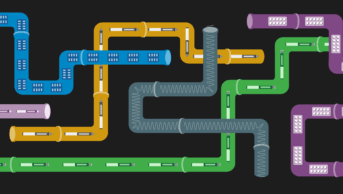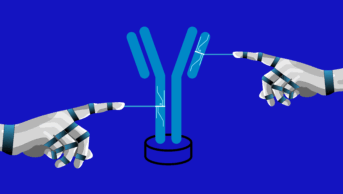
AJ PHOTO/SCIENCE PHOTO LIBRARY
A potent type of antibody therapy trialled in HIV patients for the first time has been shown to reduce the amount of virus in patients’ blood.
In research published in Nature
[1]
on 8 April 2015, high doses of the “broadly neutralising antibody” significantly reduced the amount of virus in patients’ blood. But for some patients, evidence of resistance against the treatment developed within weeks.
Broadly neutralising antibodies are produced naturally by a small fraction of HIV-1 infected patients and are effective against many strains of HIV. Efforts to induce the production of similar antibodies in other patients using a vaccine have not been successful. In this trial at Rockefeller University, New York, researchers introduced the antibody itself into HIV patients.
“Our data establish that passive infusion of single broadly neutralising antibodies can have profound effects on HIV-1 viraemia in humans,” say the researchers.
The broadly neutralising antibody used in the study, called 3BNC117, is effective against 195 of 237 strains of HIV-1. A total of 17 HIV-1 infected patients (and 12 uninfected patients) were given a single intravenous dose (1mg/kg, 3mg/kg, 10mg/kg or 30mg/kg) and monitored over the next 56 days.
At the two lowest doses (1mg/kg and 3mg/kg), there was no sustained change in the amount of virus in the patients’ blood. The six infected patients given these doses subsequently had dramatic reductions in sensitivity to the antibody, between a 13.5-fold and 35-fold decrease.
All but one of the 11 infected patients given the higher doses of 3BNC117 (10mg/kg and 30mg/kg), had a significant drop in the amount of virus in their blood. The patient who did not was infected with an HIV strain resistant to the antibody. At a dose of 30mg/kg, viral load rapidly decreased, with an average drop of 1.48 log10 — roughly a 30-fold reduction. For half of the eight patients given the highest dose, the amount of virus in their blood did not return to pre-treatment levels for at least 28 days.
Yet even at high doses, there was evidence that the virus developed resistance. “We conclude that a single infusion of 3BNC117 leads to selection for high-level resistance in some but not all individuals,” say the authors.
HIV almost always rapidly develops resistance to drugs when they are given individually and it is standard practice to give patients a combination of medicines. The authors therefore suggest that antibodies are used in combination with other types of broadly neutralising antibodies or drugs.
One advantage that antibodies hold over currently available medications is the “potential to affect the course of HIV-1 infection by engaging host immunity directly”, say the researchers.
But questions remain about the place of this type of antibody in HIV treatment. Patients who produce the antibodies naturally still experience a similar course of infection as those who do not.
- The image on this article was updated on 21 June 2022

